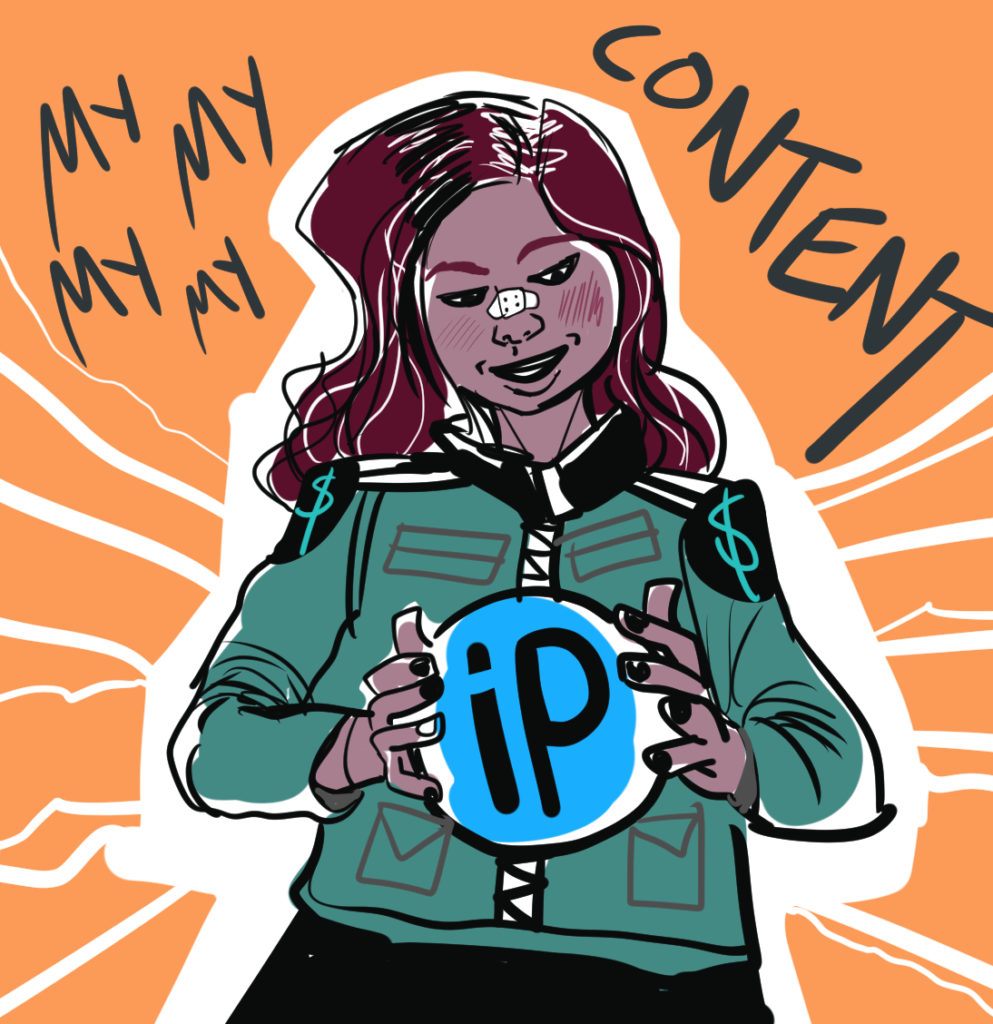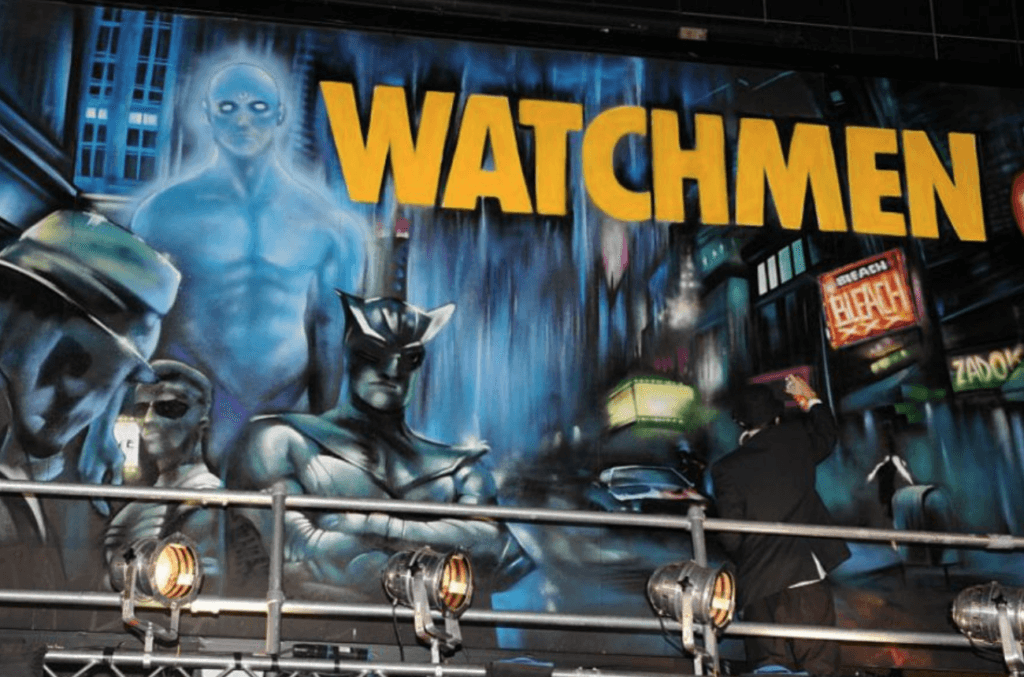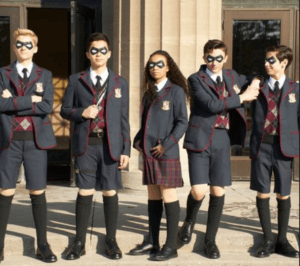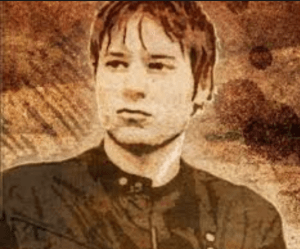
By Mars Dorian, {grow} Contributing Columnist
Creator-owned content licensing is a big trend in comics, video games, and books nowadays. It means you own intellectual property (IP) of a story universe which you can license via different media channels and products.
Back in the old days, only mega-corps could afford to build those story IPs. But thanks to the almighty internet, the tools are available to all of us.
In this post, I’ll tell you why developing creator-owned stories is an important and profitable strategy. Despite the understandable overwhelm of content shock, we also live in a gold rush era where media companies are buying story IPs left and right, no matter how small.
ANYTHING can be a story IP
The examples below come from IPs that have little or no story to begin with:
- The mega-blockbuster franchise Pirates of the Caribbean is based on a theme park ride
- The Angry Birds animation flick hails from the mobile app
- The Emoji Movie is based on a freaking smartphone keyboard function
- Many new movies and television series are emanating from obscure comic books
You see board games, indie comics, card games, crowdfunded art books. Anything that has an interesting story and enticing visuals is ripe for the license milking.
I’ll give you even smaller successful examples near the end of this post.
The importance of content licensing
If you dive deeply into comic history, you’ll find legendary creators who invented iconic characters and IPs without much long-term gain.
Back in the 60s/70s/80s, your publisher owned your work, even if you were the sole creator of the intellectual property.
Just look at British comic writer legend Alan Moore who has created the cold war masterpiece “Watchmen”. The IP spawned a comic franchise, a Hollywood blockbuster and now even an upcoming premium series on HBO.

The only problem? He doesn’t own the IP. In interviews, Moore laments how comic publishers and Hollywood are milking his story universe without his consent.
Compare his problems with British scribe JK Rowling. She is arguably the richest author on the planet. Not because she wrote Harry Potter, but because she owns the IP.
Today the mega corporations are severely suffering from a lack of content ownership.
Streaming giant Netflix has, for the first time since its launch, lost a substantial amount of subscribers. Their stocks fell by 10% in a week. Why? One of the reasons stated is Netflix’s lack of owned IP hits.
“Friends”, “The Office” and “Grey’s Anatomy” are some of the platform’s most popular shows, but they belong to other media companies. They revoke their story IPs from Netflix and show them on their own streaming channels.
Even though Netflix produces more than 700(!) shows per year, few of their story IPs have lasting appeal. Right now, I can only think of “Stranger Things” and “House of Cards”. Maybe the new and popular “Umbrella Academy”, which is based on a creator-owned comic, but that’s it.
Disney owns Star Wars, Marvel’s superheroes, James Cameron’s Avatar, Indiana Jones, Pixar Animation, Diehard, Planet of the Apes, X-men, the Simpsons, Alien/Predator–all pop culture icons you’ve surely heard of.
The lesson? You can be THE top player in your market and still stagger if you fail to develop AND own compelling content.
Small players and content licensing
So far, I’ve mentioned giant multimedia companies like Disney, Warner, and Netflix. But you don’t have to be a fortune 500 corporation to create and own your story IP:
-

Umbrella Academy
Brazilian comic artist Gabriel Bá and American pop writer Gerard Way created a little comic called Umbrella Academy, which is now a multimedia franchise, including an ongoing Netflix series, spin-offs, merchandise and toys
- Tom Bilyeu, the American entrepreneur behind Quest Nutrition, is now launching his own comics under the Impact Theory label to expand his multimedia ventures
- Swedish illustrator Simon Stålenhag crowdfunded his narrative art books about dystopian futures and sold the rights to US publishers, Hollywood, and the Amazon film studios
Simon’s example proves you don’t have to be an American living in mega-media cities like NYC or LA to make your content go big. He lives in the Swedish countryside, using only his computer and graphic tablet to build successful story IPs with global impact.
Becoming strategic with your content
The idea is to incorporate your product or service into a story. You then use your preferred media to tell that story and sell licenses.
Thankfully, you don’t have to create the next Marvel cinematic universe as the examples above show that high-quality content produced for a niche audience can still reap big rewards:
- 1) Know your niche audience
- 2) Create your story IP in a medium that your audience is inclined to use
- 3) Develop a targeted product (a book, video, print series etc.)
- 4) If you find success, sell licenses and expand
Have you ever thought about creating your own story IP?
 Mars Dorian is an illustrating designer and storyteller. He crafts words and pictures that help clients stand out online and reach their customers. You can find his homebase at www.marsdorian.com and connect with him on Twitter @marsdorian.
Mars Dorian is an illustrating designer and storyteller. He crafts words and pictures that help clients stand out online and reach their customers. You can find his homebase at www.marsdorian.com and connect with him on Twitter @marsdorian.


